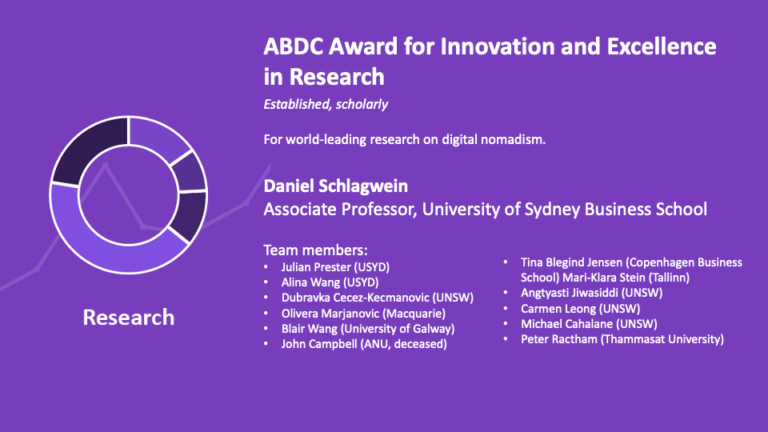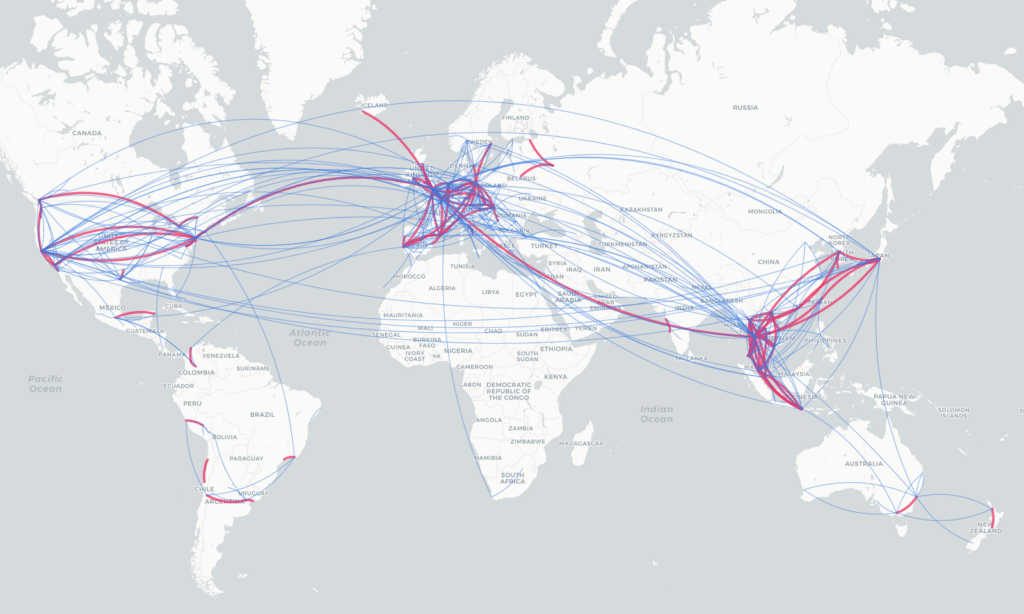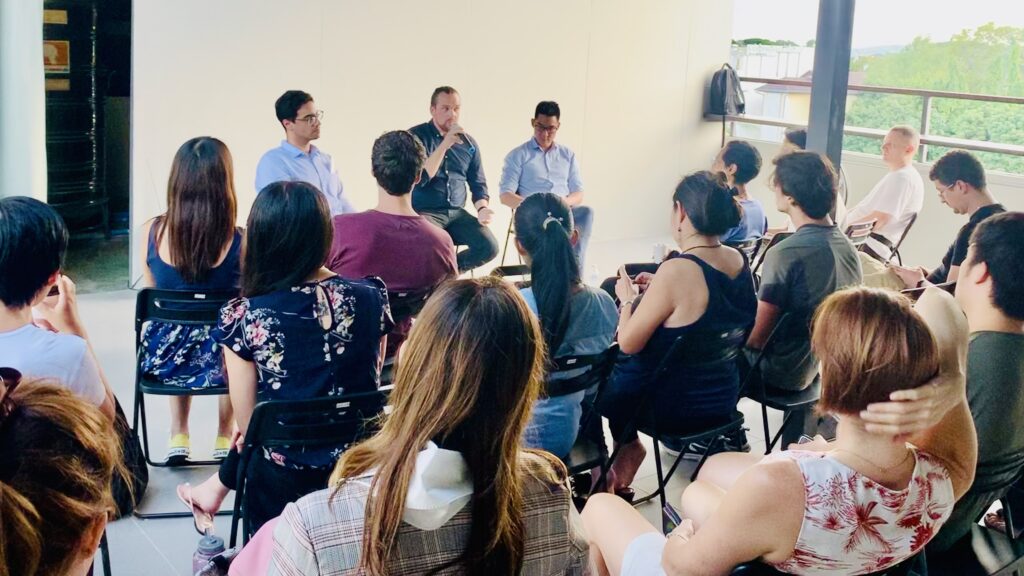2023 Network Awards – Established, Scholarly Research

Judges’ comments
The panel recommends this project in the established, scholarly category because the applicant has demonstrated global leadership and international collaboration in digital nomadism research. Research excellence was shown in the quality of research publications, including through third-party literature reviews. The research employs an innovative approach in pooling qualitative data, fostering multi-institutional research collaboration. There is also strong evidence of research impact in advising governments, organisations and communities about the policy, business and social impacts of digital nomadism.The initiative
Daniel Schlagwein and his team provides world-leading research on digital nomadism.
Digital nomadism examines the lifestyle of professionals who work digitally while adopting a neo-nomadic, travel-oriented lifestyle. This emerging phenomenon has gained momentum, particularly following the COVID-19 pandemic.
Through grants like a 2019 ARC Discovery Grant, where Daniel Schlagwein served as Lead Chief Investigator, and an ASEAN Fellowship via Thammasat University, this work has been recognised as innovative and impactful.
The research is expansive and in-depth. Researchers monitor online communities and conduct case studies globally, complemented by extensive ethnographic fieldwork.
The collaboration is international, from Australia to Indonesia, Thailand, Estonia, Denmark, and the United States, demonstrating the research’s global relevance and applicability.
As the significance of digital nomadism continues to grow, now is the time to recognise and celebrate the pioneering contributions to this transformative subject. In addition to leading in terms of publication output on this topic globally, Daniel Schlagwein and his team and have provided advised governments (e.g., digital nomad visas), organisations (e.g., work-from-anywhere policies), and communities (e.g., digital nomad strategies).
Research benefits
It impacts the development of digital nomadism as a research area. We first framed and described digital nomadism as a research topic. Third-party analyses show our group leads globally in this field.
It involves the novel practice of digital nomadism in practice. Digital nomadism itself is an innovative and emerging phenomenon at the intersection of technological development and business innovation. We have made a practical impact by presenting our work to industry and advising governments on digital nomad policies and visas.
It utilises an innovative technological/methodological design. Daniel Schlagwein has developed a novel qualitative data analysis (QDA) design using NVivo Server that pools research data while allowing separate, secure, and ethical analysis. The team collaborates with scholars from six universities, which include UNSW, Macquarie University, Tallinn Institute of Technology, Thammasat University, University of North Carolina, and Copenhagen Business School.
Researchers communicate findings in innovative ways. In addition to frequent presentations at conferences and in the media, we publish our research on a web portal as a knowledge hub.


Applied impact
Advising national governments on their digital nomad visas. For example, Daniel Schlagwein provided advice on Thailand’s ‘Digital Work Permit’, launched in October 2022. Since then, nine of 10 of his suggestions have been implemented in its final version.
The team worked with local communities on their digital nomad strategies. For example, it helped to develop the digital nomad strategies of local communities worldwide in places like Chiang Mai in Thailand and Mallacoota in Victoria, Australia.
Researchers have worked with various organisations and provided keynotes, panels, and workshops at industry and ‘nomad’ conferences worldwide — in Australia, Colombia, Indonesia, Korea, Thailand, New Zealand and Vietnam. These include the TechSauce Global Summit (22,000 attendees) and CU Asia (a leading nomad conference).
Daniel Schlagwein has been asked to consult other Australian research groups to replicate the team’s innovative multi-researcher qualitative data pooling design.



Academic impact
This is based on approximately 25 peer-reviewed papers to date, including those published in ABDC A* journal level, and others forthcoming at this level.
Other evidence includes the awards of an ARC Discovery Grant of which Daniel Schlagwein am the Lead-CI, an ASEAN Bualuang Fellowship, three UNSW Scientia Ph.D. scholarships, and leadership of the Digital Future(s) Research Group, of which digital nomadism is a key topic.

Other references
Media
- Digital nomads: Putting ideas into practice in a Portuguese village, El Pais, 10 April 2023
- How digital nomads keep working as they wander, UNSW BusinessThink, 15 August 2018
- Digital Nomads: Study of a Tribe, Hive Life, 23 October 2018